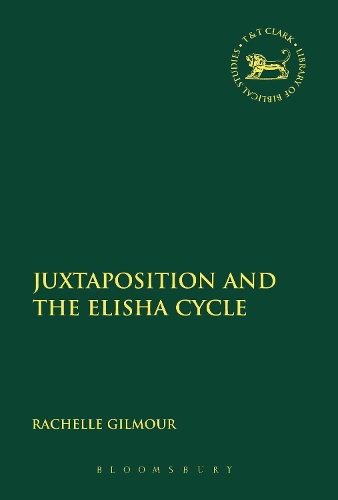
Juxtaposition and the Elisha Cycle
(Hardback)
Available Formats
Publishing Details
Juxtaposition and the Elisha Cycle
By (Author) Rachelle Gilmour
Bloomsbury Publishing PLC
T.& T.Clark Ltd
7th November 2013
United Kingdom
Classifications
General
Non Fiction
Criticism and exegesis of sacred texts
222.506
Physical Properties
Hardback
264
Width 156mm, Height 234mm
553g
Description
This monograph examines the juxtaposition of narrative units in biblical narrative and the effect this has on interpretation. Early rabbinical and inner-biblical interpretations suggest that juxtaposition was an intentional device used by biblical editors and authors to shape the meaning of their material. Therefore, this monograph develops a framework for recognising the ways in which adjacent units interpret and re-interpret one another and presents this framework as an important hermeneutical tool. Stories and episodes that are linked chronologically affect one another through a relationship of causes and consequences. The categories of contradiction, corroboration and question and answer are also used to describe the types of interaction between narrative units and demonstrate how such dialogues create new meaning. Indicators in the text that guide the audience towards the intended interpretation are identified in order that a 'poetics' of juxtaposition is developed. The theoretical basis established in the first half of the monograph is then applied to the Elisha cycle. Each episode is interpreted independently and then read in juxtaposition with the surrounding episodes, producing a fresh literary reading of the cycle. Furthermore, in order to demonstrate how juxtaposition functioned as a diachronic process, attention is given to the literary history of the cycle. We conjecture earlier interpretations of the Elisha episodes and compare them to the final form of the cycle. Finally, the Elisha cycle is itself a story juxtaposed with other stories and so the same principles of interpretation are used to suggest the meaning of the cycle within the book of Kings.
Reviews
[Gilmour] demonstrates that the Elisha narratives are not simply a collection; they have a plot that points ultimately to Elishas role in the overthrow of the House of Omri. In sum, Gilmour lays the foundation for future work. * The Journal of Religion *
Author Bio
Rachelle Gilmour (PhD, University of Sydney) is a postdoctoral fellow at the Hebrew University of Jerusalem. She is the author of Representing the Past: A Literary Analysis of Narrative Historiography in the Book of Samuel (VTS 143, 2011)
